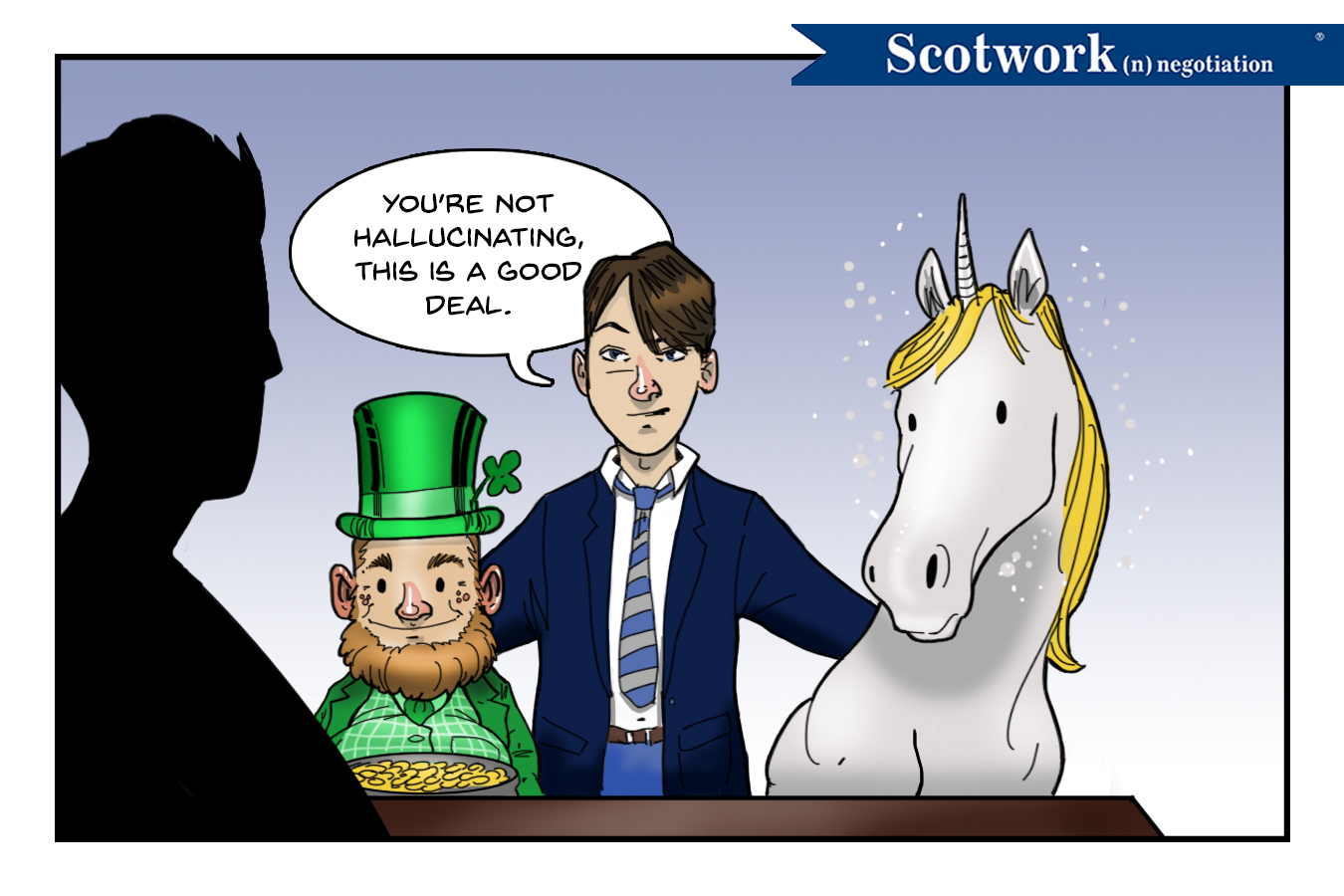In a recent TED Talk from Anil Seth describing how our brain constructs reality, he made an interesting statement, “If hallucination is a kind of uncontrolled perception, then perception right here and right now is also a kind of hallucination… In fact, we're all hallucinating all the time, including right now. It's just that when we agree about our hallucinations, we call that reality.” After I chuckled at my perceived hallucination called reality, it reminded me of the one hallucination that every negotiator suffers from…
When you ask someone, “How are you?” and they say, “Good” - do you believe them? I bet many of you don’t give it another thought. It’s just how we greet people. Besides, what are we going to say? “Are you really?” It just doesn’t seem natural or polite. Instead, we’ve conditioned ourselves to assume they are good; despite knowing that many of us have said we are “good” too, even though we might be having a bad day.
That’s the hallucination that plagues negotiators all the time - assumptions. They take what is said at face value way too often. They assume there’s no hidden meaning and take what they are being told as true and without agenda. But more often than that, if the negotiator can break their hallucination and just ask a few questions, they’ll discover the really meaning.
For instance, recently I was coaching a seller through a negotiation where the seller gave a buyer a quote for services of $252,530. The buyer then said, “I can’t do that right now, but I can do $200,000 and if you can’t do that, we’ll wait till next year.” The seller immediately wanted to go to their boss and asked if he could counter at $226,265. I asked, “why?” The seller said, “well, they can’t do the $252,530 and I don’t want to wait till next year, so I thought I would meet them in middle at $226,265.”
I’m sure many would have followed the same logic. However, that logic only holds true if everything the buyer said was true. So I encouraged the seller to ask a few questions…
- Are you saying that if you don’t do it now, you’ll have the budget to do it next year?
- What’s the implication to your business if you wait till next year?
- Besides price, are there any other obstacles standing in your way?
- Can you help me understand how you came up with $200K?
- Is this a budget issue or a payment issue?
- Assuming I can’t give you a better price, what can you do now and what can you do later?
- Discounts are given based on volume or commitment, which can you give more of to get the discount you’re asking for?
Once the seller started to ask these questions, the seller discovered that the buyer had no real basis for the $200K counter - the buyer said, “it just seemed fair”. The seller also discovered that the buyer was open to giving more volume but needed to spread the payment out between this year’s budget and next. Armed with all this information, the seller was actually able to increase the entire deal size, gain a two year commitment, spread payments out as the buyer needed, and close a deal that everyone was happy with - without having to give a discount (the seller was able to trade extended payment terms in lieu of a “pay up front” price discount).
Once your trapped in your hallucination, it can be hard to break out of. However, if you just take a moment to evaluate the statements being made and seek to understand them before reacting, you can protect yourself from being trapped in your hallucination of assumptions
Stop Hallucinating!
Negotiators leave money on the table all the time because of their assumptions. Let us help you break those assumptions. Either by coaching you through a critical deal or giving you a negotiation process and foundation that will allow you to tilt the playing field towards your advantage.
We’ve been consulting and teaching our proven negotiation methodology for over 40 years. When you know the process, can identify the skills required, and have the techniques to navigate your negotiations you will gain control. That control will create better deals for you!
Talk to one of our experts today.

